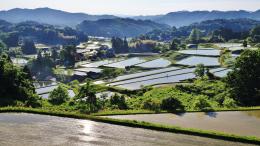A new letter in the journal Science addresses how to ensure vulnerable groups can access new funding for countries impacted by climate change. The breakthrough agreement to establish a global loss and damage fund was one of key outcomes of the 2022 UN Climate Change Conference in Sharm el-Sheikh, Egypt (COP27).
In the letter Bharat Dahiya (Director, Thammasat University) and Mahesti Okitasari (Consultant, UNU-IAS) argue that “the litmus test for a fair and just Loss and Damage fund will be whether it serves those who need it the most”.
Summary
-
People living in developing countries are especially vulnerable to climate change, and those who live below the poverty line suffer disproportionately relative to more affluent communities from extreme weather events, such as tropical cyclones, fluvial floods, and landslides.
-
The committee charged with operationalising the new funding arrangement must ensure that the most vulnerable and affected groups can access this critical financial support. Its deliberations ought to focus on making financing inclusive.
-
Flexible finance governance architecture, such as a database tracking social protection of vulnerable populations, could help mitigate inequalities, and proactive measures could ensure that the funding reaches even those communities that lack internet connections.
-
The fund should also include long-term financing to support alternative, climate-resilient livelihoods.
The letter was published in Volume 378, Issue 6626 of Science on 22 December 2022, and is available to read on the Science website (subscription required). This letter has also been republished in Our World.




